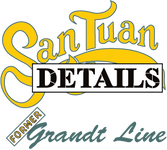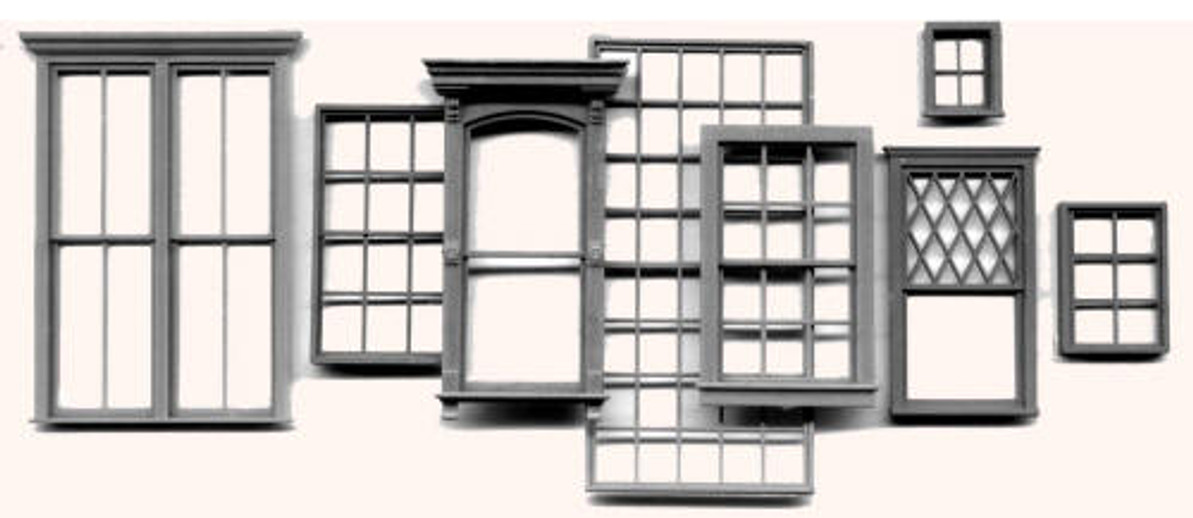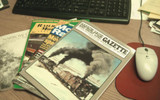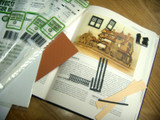Tips & Techniques
About our parts:
Most of our parts are injection molded in medium impact gray poly-styrene. Where bearing surfaces or parts are subject to breakage from handling, a few parts are modeled in Delrin, in appropriate colors.
Parts shown in our catalogs and in the website are molded in Styrene, unless otherwise noted. All parts are drawn actual size. In some cases where enlargement is used to show detail, a black silhouette shows actual size.
Prototypes for Grandt Line components are thoroughly researched. Our parts are as accurate as our information and the manufacturing process permit.
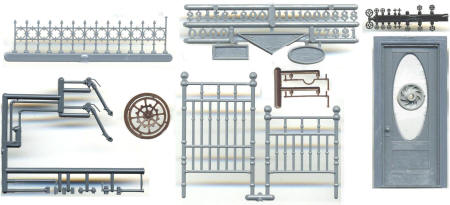
On modeling with plastic components:
Styrene parts may be cemented to other styrene parts using Testors Liquid® or other liquid cements. Apply the liquid sparingly, using a 5-0 brush. Glue will not adhere to Delrin® parts. It is necessary to surround these parts with cement. Styrene and Delrin® parts may be applied to wood using any of the instant-set adhesives, such as S-Dine®, Eastman 910®, Locktite 404® or Crazy Glue®.
Before assembling plastic models, a good modeler removes parting lines and sprue marks. This may be done with a razor knife or a small file. If a part should break during handling or assembly, cement it at the break (holding slight pressure) and allow it to dry for at least ten minutes.
The scales which we work with are….
- N Scale 1:160
- HO Scale 1:87
- S Scale 1:64
- O Scale or 1/4″ Scale 1:48 1/4″ to the foot
- 1/2″ Scale 1:24 1/2″ to the foot
Here is a representation of the differences between them:
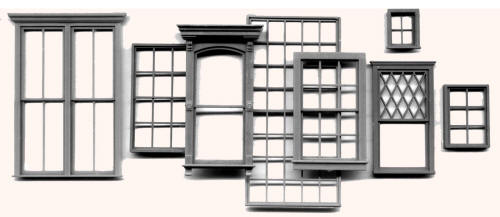
| Try this handy link if you are having difficulty converting measurements from real life to your favorite scale. It is also helpful if you need to convert English measure to Metric. |
Recent Posts
-
-
Scratch Building Models
Scratch-building Architectural ModelsOur most popular products are the many architectural detailing …Aug 19th 2019 -
Painting Tips
For finely detailed models, spray painting is the best way to go. Floquil® Polly Scale, when used w …Aug 19th 2019
